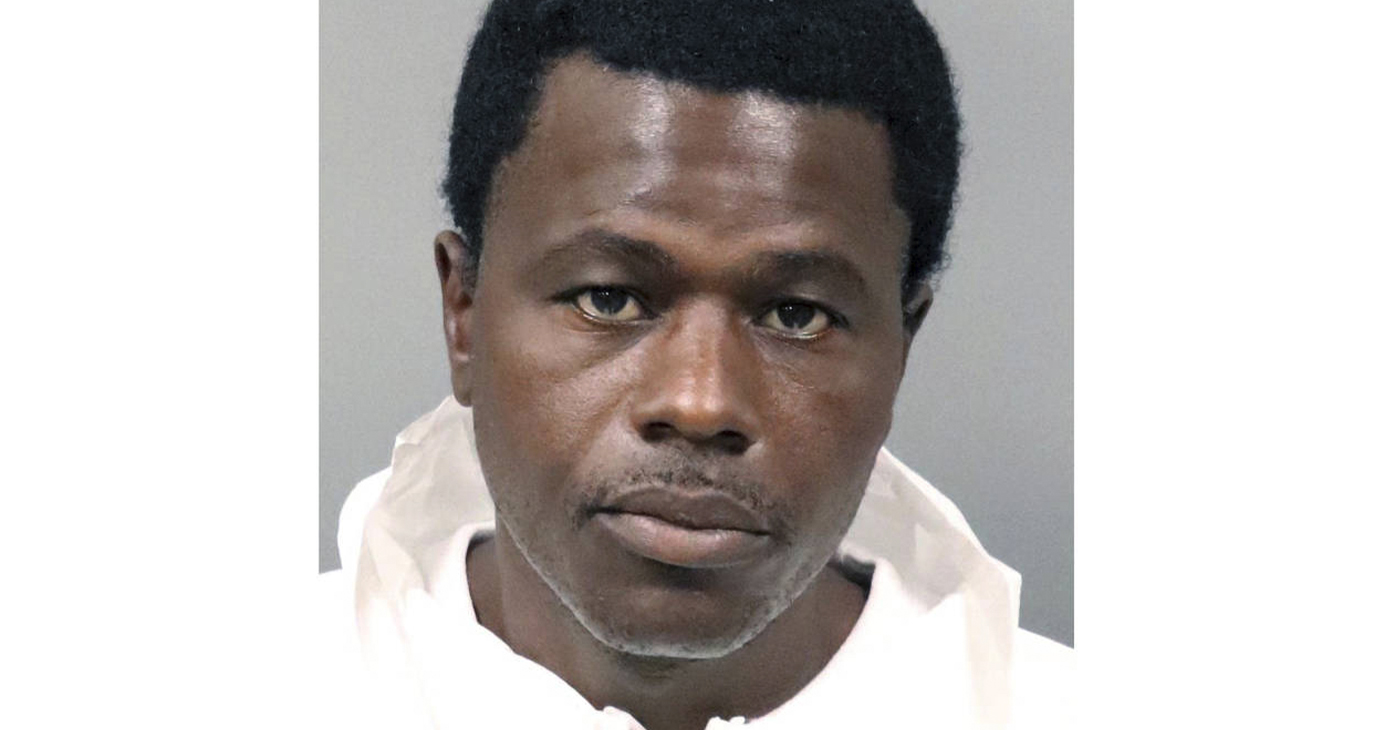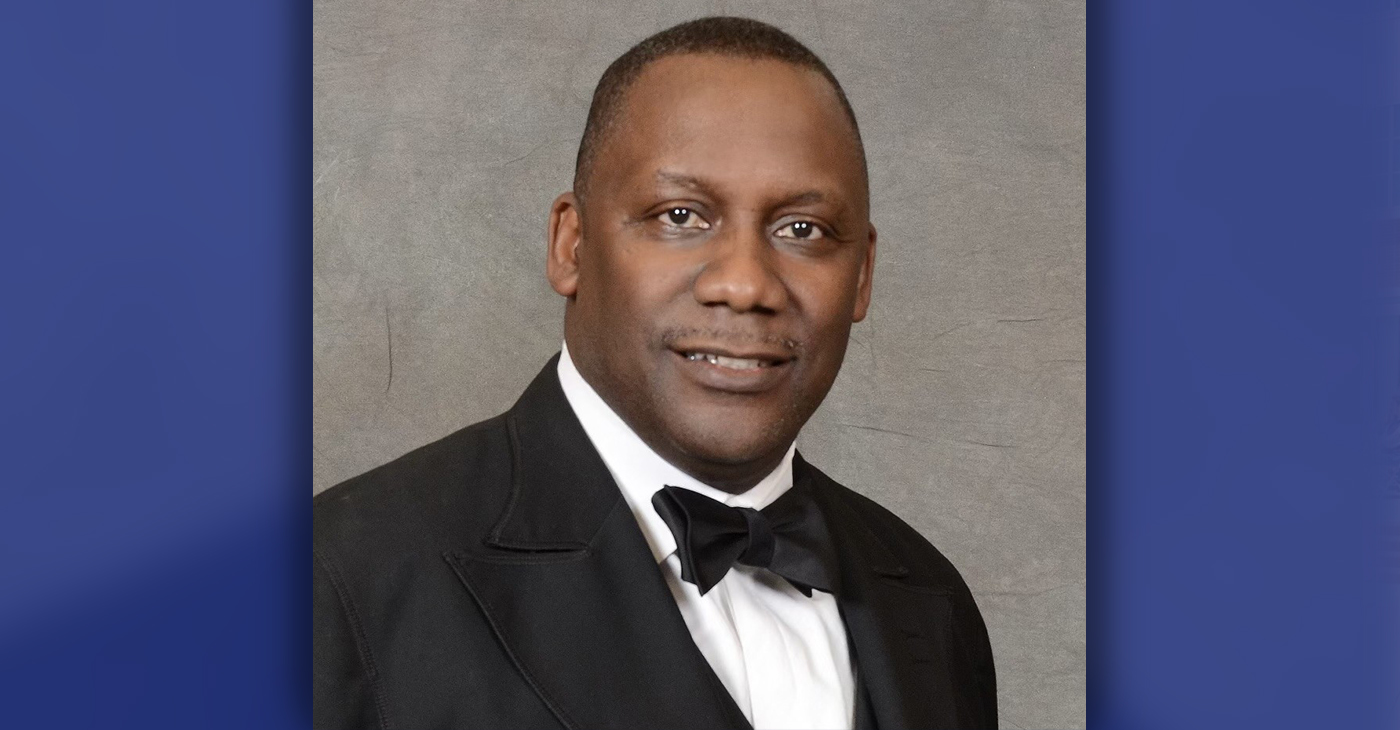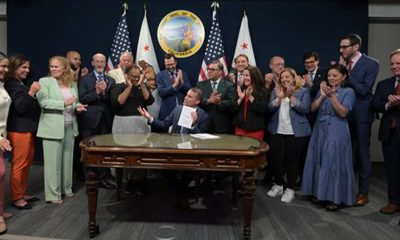Bay Area
Bay Area Native Tied to Serial Killings in Stockton, Oakland
Acting on a tip, local police and other law enforcement agencies began surveilling Wesley Brownlee, a Bay Area native. He was arrested while scouting for new victims. When he was taken into custody, Brownlee was dressed in black clothing and was carrying a pistol and a mask. “Our surveillance team followed this person while he was driving. We watched his patterns and determined early this morning he was on a mission to kill,” said Stockton Police Chief Stanley McFadden during a press conference. “He was out hunting.”

By Manny Otiko | California Black Media
Wesley Brownlee, a Bay Area native, is being held on murder charges by Stockton police. He is a suspect in a string of murders in Stockton and Oakland.
According to news reports, local police have long suspected a serial killer was operating in the area. The serial killer is suspected of being responsible for at least six murders. One of the victims was shot but survived.
Brownlee, who lives in Stockton, has a history of drug arrests. According to juvenile court records, Brownlee lost a brother to gun violence. After this incident, he showed signs of mental and emotional distress.
Acting on a tip, local police and other law enforcement agencies began surveilling Brownlee.
He was arrested while scouting for new victims. When he was taken into custody, Brownlee was dressed in black clothing and was carrying a pistol and a mask.
“Our surveillance team followed this person while he was driving. We watched his patterns and determined early this morning he was on a mission to kill,” said Stockton Police Chief Stanley McFadden during a press conference. “He was out hunting.”
California State Attorney General Rob Bonta praised the Stockton Police Department and other law officers for removing a dangerous criminal from the streets.
“I am grateful for the work of the Stockton Police Department and law enforcement agencies who lent their support to this investigation, including the California Department of Justice’s Bureau of Firearms and Bureau of Forensic Services,” Bonta said in a press release.
However, there seems to be no pattern to the murders. Four of the victims were Latino, and one was a white male. The lone survivor was a Black woman. Several victims were homeless.
According to FBI profilers, most serial killers are white males. But a few of them have been African American and people of color.
For example, Los Angeles-based serial killer Richard Ramirez, active from 1984-85 and known as the “Night Stalker,” was Hispanic. He was sentenced to death in 1989 and died in prison in 2013.
Lonnie David Franklin Jr., dubbed “the Grim Sleeper,” was African American. Franklin was responsible for at least 10 murders from 1984-2007. He was called the Grim Sleeper because he appeared to go dormant and then become active again at intervals during his killing spree, which lasted three decades.
Franklin mainly targeted women in the South-Central area of Los Angeles. Most of his victims were sex workers. Several local residents complained that police didn’t take the killing seriously. After being convicted and then sentenced to death in 2016, Franklin died in custody in 2020.
According to FBI records, Samuel Little, an African American, is considered the most prolific serial killer. He claimed responsibility for 93 murders, 50 confirmed by the FBI.
According to police records, Little operated in Los Angeles and parts of Los Angeles County at one point. But before dying in prison in 2020 at the age of 80, prosecutors planned to tie him to murders in at least 14 states. He was serving a life sentence.
Activism
Oakland Post: Week of July 24 – 30, 2024
The printed Weekly Edition of the Oakland Post: Week of July 24 – 30, 2024

To enlarge your view of this issue, use the slider, magnifying glass icon or full page icon in the lower right corner of the browser window. ![]()
Activism
Oakland Post: Week of July 17 -23, 2024
The printed Weekly Edition of the Oakland Post: Week of July 17 -23, 2024

To enlarge your view of this issue, use the slider, magnifying glass icon or full page icon in the lower right corner of the browser window. ![]()
Bay Area
Op-Ed Senate Bill 966 Threatens Health Equity in East Bay
My East Bay community is struggling to get by. A proposed State Senate bill would set us back even further. Serving the East Bay community has been my life’s work and my greatest joy. After leaving the Bay Area to complete my seminary, I returned home to found The Community Church in Oakland. From the outset of my time as the church’s pastor, I have been guided by the belief that my service must extend beyond the pulpit, because the health and economic needs of my community are so great. Our church has organized free food banks, COVID-19 testing clinics, and a housing and re-entry program for those suffering from addiction.

By Rev. Dr. Lawrence E. VanHook
Special to the Post
My East Bay community is struggling to get by. A proposed State Senate bill would set us back even further.
Serving the East Bay community has been my life’s work and my greatest joy. After leaving the Bay Area to complete my seminary, I returned home to found The Community Church in Oakland.
From the outset of my time as the church’s pastor, I have been guided by the belief that my service must extend beyond the pulpit, because the health and economic needs of my community are so great. Our church has organized free food banks, COVID-19 testing clinics, and a housing and re-entry program for those suffering from addiction.
Through my service, I have seen the challenges that our community members are facing. Oakland, my hometown, has the third-highest rate of violent crime in the state. The local economy is strained. Oakland-based businesses are leaving our community because they’re struggling to get ahead.
Both East and West Oakland has disproportionately high rates of respiratory illness due to heavy air pollution. While our local efforts have brought some aid to those in need, we are also counting on our state elected officials to help us address the systemic health disparities afflicting the community.
Chief among the health concerns of community members is having reliable and affordable access to prescription drugs. Equitable access to medications gives us the peace of mind that we can keep ourselves and our families healthy and safe. Our community should not have to choose between paying rent or purchasing prescriptions.
Unfortunately, rather than taking action to combat soaring prescription drug prices, some California lawmakers are pushing legislation that could raise patient costs at the pharmacy counter.
The Legislature is currently considering SB 966, a bill backed by special interests that would undercut the few tools we have to keep prescription drug costs contained, letting big drug companies increase their prices, profiting on the backs of working families – some of whom already live paycheck to paycheck.
SB 966 would target the fundamental programs through which small businesses, unions, and government health programs are able to offer their employees and members quality and affordable healthcare. Millions of Californians rely on these plans to obtain essential medications at the lowest-possible cost.
The bill would make it illegal for employers and unions to incentivize the administrators of their prescription drug plans to negotiate for the lowest possible cost for prescriptions. Right now, small businesses and unions can choose to pay these administrators more for taking on big drug companies and securing discounts – a choice that will be outlawed under this bill.
As a result, employers will have no leverage to stop big drug companies from setting sky-high prices, disproportionately impacting working families.
As these health costs quickly add up, employers will have little choice but to pass the increases down to their employees. That means California patients will see higher healthcare costs and co-pays.
From my perspective, most concerning is that the bill would exacerbate the health disparities impacting my community and other underserved populations. If SB 966 becomes law, the most vulnerable may be forced to skip prescription doses, stop filling their prescriptions, and avoid essential care.
By rejecting this cash grab by big drug companies, our state elected officials can send a clear message that they stand with the community, patients, and working families.
We cannot afford SB 966.
Rev. Dr. VanHook is the founder and pastor of The Community Church in Oakland and the founder of The Charis House, a re-entry facility for men recovering from alcohol and drug abuse.
-

 Arts and Culture3 weeks ago
Arts and Culture3 weeks agoRooted in Tradition: The Intricate History of Black Hair Braiding
-

 Bay Area4 weeks ago
Bay Area4 weeks ago“I Will Not Be Bullied,” Says Oakland Mayor Sheng Thao
-

 Bay Area2 weeks ago
Bay Area2 weeks agoPG&E Increases Rates While Bay Area Households Are Struggling to Stay Afloat
-

 Business3 weeks ago
Business3 weeks agoGov Newsom: Raising Fast Food Minimum Wage to $20 Pays Off as Jobs Multiply in Industry
-

 Activism4 weeks ago
Activism4 weeks agoOpponents of Mayor Sheng Thao Are Calling on Her to Resign Following FBI Raid
-

 Community1 week ago
Community1 week agoHundreds Come to Jehovah’s Witnesses’ Assembly Hall for Three-Day Program of ‘Good News’ in Fremont
-

 Bay Area2 weeks ago
Bay Area2 weeks agoJuneteenth Mass Shooting Suspect Charge with Multiple Counts of Felony Assault by Alameda County DA Pamela Price
-

 Activism4 weeks ago
Activism4 weeks agoOakland Coliseum Sale to AASEG: A Model for Community Development and Inclusion



















































